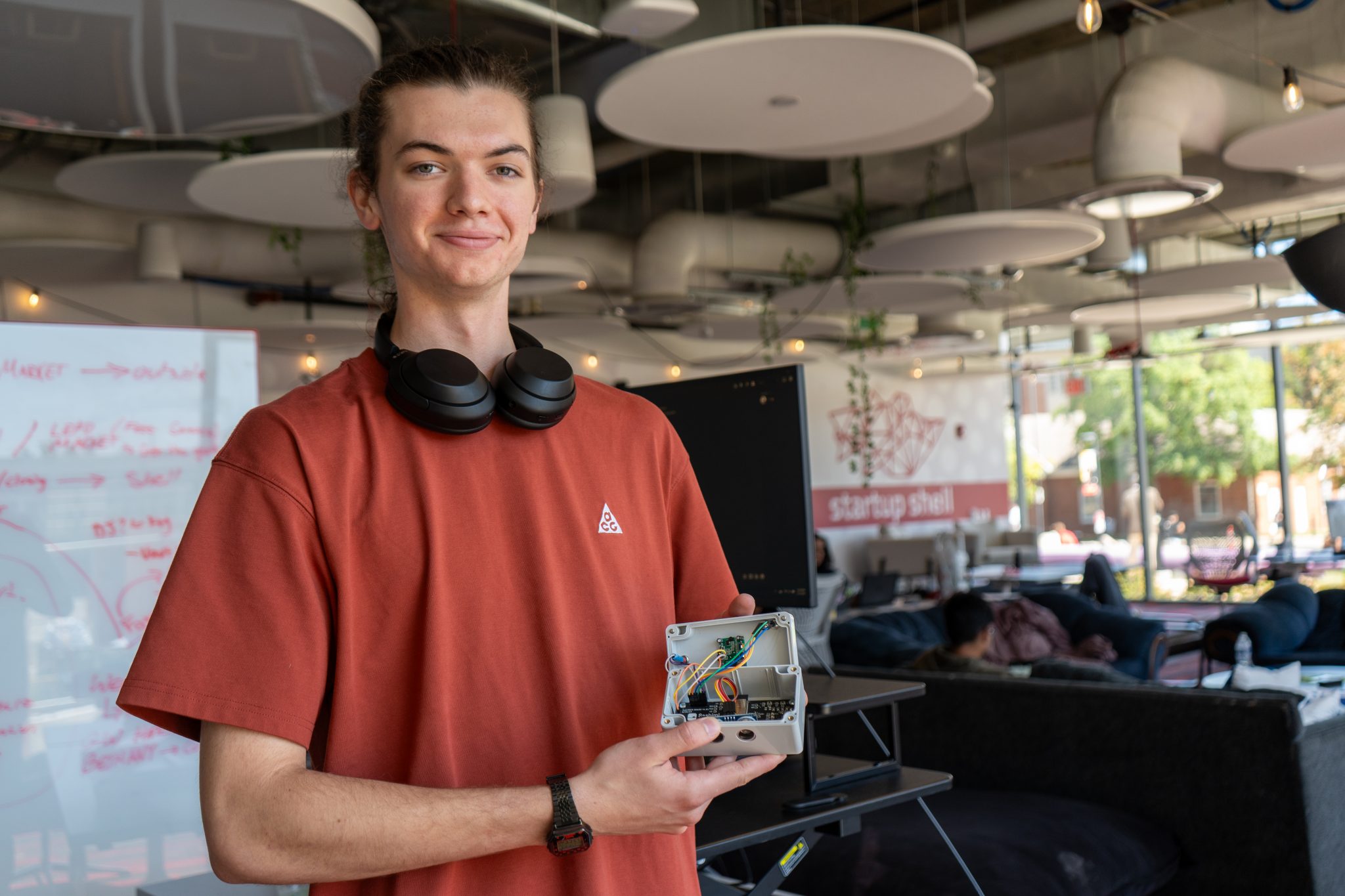After a recent push for more eco-friendly operations, the University of Maryland has been cooperating with alumni to improve on and off-campus sustainability.
Kevin Tu and Krisztina Christmon, who each graduated from this university in the spring, have been collaborating with this university and other stakeholders to advance this cause. Tu’s company, Sustainabli, works with this university and other research institutions to reduce carbon waste, while Christmon’s work prioritizes finding more efficient ways to recycle single-use plastic waste from farms.
Tu, who holds degrees in economics, neurobiology and physiology, was inspired to take action on sustainability after seeing firsthand how much waste lab procedures can generate during his time as a student researcher.
Sustainabli now primarily serves labs on campus with a tool that can monitor fume hoods — vents in labs that prevent hazardous chemicals from leaking. The tool allows lab workers to manage all of the fume hoods in their area from a central dashboard.
Many labs leave fume hoods on when not in use because it is difficult to monitor them without an external tool. This can result in greenhouse gas emissions, as the energy used to operate a fume hood for several minutes is equivalent to 3.5 American households’ yearly energy usage, according to Sustainabli’s research.
With Tu’s tool, researchers can deactivate hoods remotely, helping the lab reach sustainability goals and saving them money. By implementing this system, Tu estimates Sustainabli has reduced the carbon footprint of on-campus labs by 70 to 100 metric tons.
[New Maryland law expands composting on campus and beyond]
Tu said other universities, as well as professional industry labs, have shown interest in his fume hood monitoring tool.
“Compared to other industries, I think there’s a growing interest and a growing capacity to support [sustainability] in science,” Tu said.
On the Eastern Shore, Christmon has been working to improve recycling with her startup, Repurpose Farm Plastic. Experts estimate up to 70 percent of plastic entering recycling facilities around the world is unusable because of contamination, according to The Guardian, and Maryland farmers generate 1,800 tons of plastic waste per year.
Christmon, a University of Maryland entomology graduate, developed a dry cleaning device that removes dirt from plastics, which allows them to be recycled. The mechanism, which doesn’t use water, is both cost effective and more efficient than standard normal cleaning machines, Christmon said.
“It’s low cost, low initial investment, low maintenance,” Christmon said.
The granddaughter of a Hungarian farmer, Christmon has always been involved with agriculture. Repurpose Farm Plastic got its start at the beginning of the pandemic, and did research that found many farmers have no way to recycle the single-use plastics used daily in their fields. After working in the farm sustainability space during the 2020 AgEnterprise Challenge, interviews with farmers propelled Christmon on a sustainability “mission.”
[University Senate approves undergraduate global health degree, debates exam policies]
Christmon and Repurpose Farm Plastic work at this university’s Wye Research and Education Center on Maryland’s Eastern Shore. Farmers have been vocal with their support for Christmon’s work, as have investors—who see potential in her dry cleaning device. Repurpose Farm Plastic’s work is a “win-win for everyone,” she said.
Andrew Muir, the assistant director of digital communications at this university’s agricultural and natural resources college, believes that efforts like Sustainabli and Repurpose Farm Plastic’s are instrumental in pushing the university in a more eco-friendly direction.
“I think there’s still a really strong culture in our community of being committed to sustainability,” Muir said.



